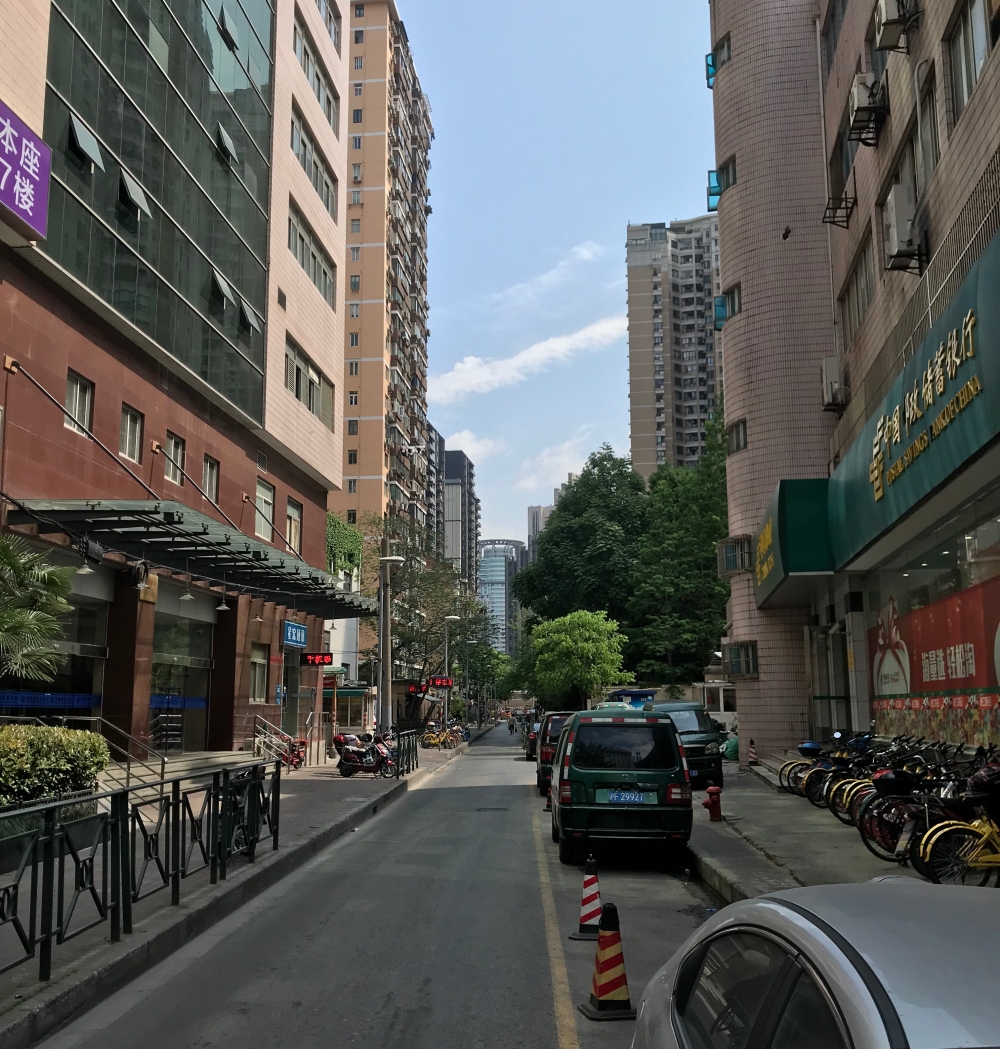We have been studying Mandarin for just under two years now and finally decided to get an HSK qualification, the HSK2, under our belts. We had worked our way through an introductory book, the HSK1 and 2 books with our tutor and had been revising for a few months now, so it was definitely time to do this. This was my first exam in about 12 years or something, so I was pretty nervous! However, I think it went well, we just have to wait for the test results. Anyway, I thought it might be useful share a few tips on how to prepare for this and what it was like to do the test in Shanghai!

The test centre
As a first step, you will need to register and pay for your HSK exam on chinesetest.cn. There are a few centres, but our closest test centre (上海长宁汉龙教育文化培训中心(网考)) is located near Xujiahui metro station and is in a building that is relatively easy to find opposite China Post. However, inside the building it isn’t actually signposted so you will have to use your initiative and locate the right floor in the lift. The concierges in the building seem to be used to lots of foreigners traipsing in so they can always tell you the floor though, and the likelihood is you will meet other foreigners going the same way. If you happen to go to the same test center, it’s on the 11th floor. The test centre tell you not to bring any valuables with you and this is because there are no lockers, so you have to leave your bags unattended outside the room. This is a bit unfortunate, but you can keep your phone (switched off) and wallet in your pocket and passport on your desk. Just make sure you remember your passport and printed confirmation letter as they will ask for this. There are some toilets in the test centre, but that’s about it for facilities. Inside the test centre the other candidates seemed to be mainly Japanese, Russian or Middle Eastern, all united with a common purpose – to learn Mandarin!
The test
The test takes place on reasonably modern laptops with cheap headphones that you can fortunately adjust the volume of. I chose a very loud setting to make sure I caught every word of the listening test! There was a bit of a boring long wait of half an hour before the test started, but it went quite quickly and then we started. The staff gave the instructions in Mandarin, English and Japanese and were very helpful. The test was very similar to the practice papers we had done for HSK2. A couple of the questions were in fact identical to the practice papers! You can guess what one of my top tips is going to be!
Top Tips:
- Complete as many practice papers as possible! It also helps to go through what you got wrong with your tutor. There are only 5 papers for HSK2 available, as far as I’m aware, so be careful to pace yourself with these. You can find all practice papers and audio on the University of Manchester site here. There is also an HSK2 app, which isn’t perfect, but was a useful revision tool.
- Learn the vocab at the back of your HSK2 book! And additionally vocab from HSK1. This is an obvious thing really.
- Practice listening to dialogues from the book read at different speeds. It definitely helped us prepare for the listening by having our tutor read through various dialogues quicker than during the actual test. One thing that put me off at first was how robotic the presumably computer-generated voices are on the test, so this took some getting used to.
- Having more than one lesson a week really helped our progress. We wish we had started doing this much sooner during our time in China as our progress rocketed as soon as we started doing this. As we are always busy, a week was a long time between lessons and we found we forgot things from week to week.
- Characters can help, even with HSK1 and HSK2. Even though you only need characters for the first time for the HSK3 test, there are still characters written on the reading part of the HSK1 and 2 tests. It can definitely help you to get the right answer on the multiple-choice section if you can already recognise some characters. This is also forward thinking for HSK3.
- You don’t need to understand everything to pass the test. And the pass mark is low at 60% (I think)! Really, we think we could have taken the HSK2 test a long time beforehand as in many texts and listening dialogues, you only really need to have understood one key word of vocabulary to be able to select the correct multiple-choice answer. In the end, our goal is to be able to speak Mandarin rather than to pass tests, but depending on your personal goal, you might be able to take HSK2 test a lot earlier than us!
Hope this helps and good luck with your first HSK test!
– Him
Really useful post about the HSK exams! I did the HSK4 exam a couple of years ago now, and it is quite daunting when there are so few resources online explaining what to expect! My uni offered a mock test the week before which was super helpful though – definitely worth asking if this is available at your uni/ language school!
LikeLiked by 1 person
Thank you and congrats on completing HSK4! 🙂
LikeLiked by 1 person
Thanks!
LikeLike